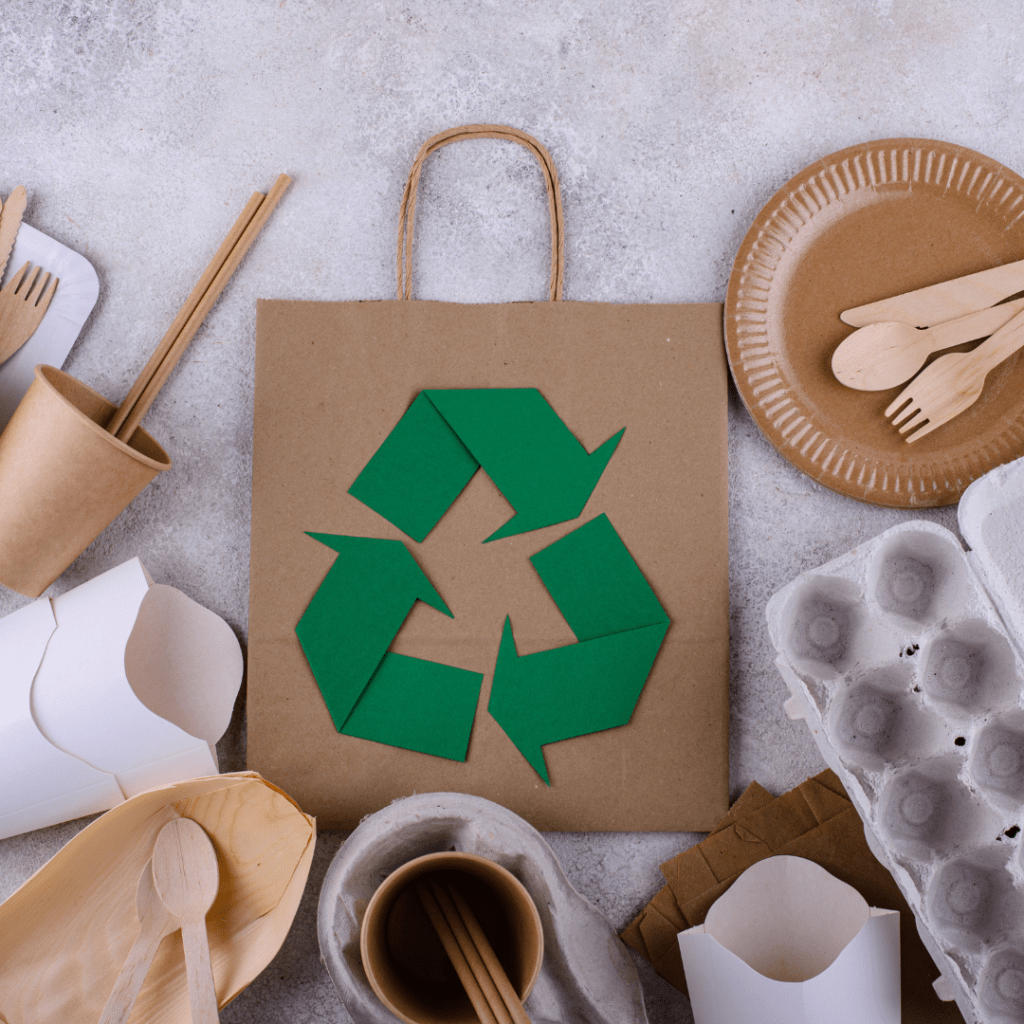IKEA’s Vow Against Single-Use Plastics
Sweden has long been a pioneer of climate change mitigation, setting a good example on a global scale. It’s often considered the most eco-friendly country in the world and consistently ranks within the top 10 on the Climate Change Performance Index (CCPI). It’s also the birthplace of climate activist Greta Thunberg, world-famous for raising environmental awareness among young people.
Therefore, it comes as no surprise that IKEA, a Swedish furniture store with an international following, is waging war on single-use plastics.
The IKEA Approach to Plastic Waste
IKEA is known for its affordable flat-pack furniture and the Swedish meatballs you can buy from its in-store cafés. The retailer has showrooms in over 60 countries, generating a colossal amount of plastic waste through packaging, displays, and the products themselves.
However, IKEA is being proactive about pollution. Here’s how it’s tackling plastic waste and how they plan to expand their efforts in the near future:
Removing single-use plastics from all stores.
In 2018, IKEA announced a phase-out of all single-use plastic from its showrooms. In January 2020, the mission was completed, and you’ll no longer find plastic straws, cutlery, or containers in any of its in-store restaurants. Instead, the retailer now provides compostable paper alternatives. IKEA also no longer sells single-use plastic products, such as freezer bags, in its home stores.
Incorporating recycled plastics into the product range.
IKEA has also joined NextWave Plastics – a group of businesses that works together to reduce plastic pollution in our oceans. This partnership helps IKEA create home furnishings from recycled PET bottles caught in fishing nets or collected from beaches. Some of its most popular products made from recycled plastic include door mats, photo frames, curtains, and drawer organizers.
No more plastic packaging by 2030.
By 2030, IKEA hopes to be a fully circular business, meaning it makes all its products and packaging from renewable or recyclable materials. The retailer plans to start phasing out plastic packaging from 2025, swapping it out for cardboard or paper wherever possible. In food applications where plastic is necessary for hygiene, IKEA will switch to plant-based plastics.
Lessons For South African Businesses
IKEA is an international example of a business doing all it can to lower its carbon footprint. While not all the strategies will work in South Africa, we can still use IKEA as a case study for greener business practices back home. Some of the lessons we can learn include being proactive, setting clear goals, and getting help from environmental organisations.
Having a long-term plan (like IKEA’s decade-long strategy) is key to affecting lasting, sustainable change. As many case studies show us, it’s often better to start small and build up to the big things. For example, getting rid of plastic shopping bags as a first step towards circularity.
Another takeaway from the IKEA story is considering all aspects of your business. IKEA’s plan has three pathways to success: changing packaging, removing single-use items, and upping recycled content in its products. A good environmental strategy should always be multifaceted.
Local Initiatives to End Plastic Waste
One of the biggest environmental initiatives in South Africa is the SA Plastics Pact. It’s a group of businesses, NGOs, government bodies, and other industry stakeholders working together to reduce plastic pollution nationwide. Some of the founding members of the SA Plastics Pact include Woolworths, Pick ‘n Pay, Spar, Clicks, and Spur.
Here’s what each of these businesses is doing to end plastic waste in SA:
Woolworths:
Woolworths was the first retailer to announce a zero packaging waste to landfill initiative in South Africa. Since October 2022, Woolworths no longer offers single-use plastic shopping bags in any of its stores. It’s also removed plastic straws and cutlery from its cafés and is rolling out a coffee cup recycling program in selected outlets.
Pick ‘n Pay:
Pick ‘n Pay stopped offering plastic barrier bags at their tills in 2023. Previously, cashiers would use these bags to separate edible products from detergents/toiletries etc. However, they are non-recyclable and often end up as litter or in landfills. The retailer has also rolled out a sustainable clothing range made from recycled polyester.
Spar:
In 2021, Spar ditched plastic milk bottles in favour of eco-friendly paperboard cartons made from FSC-certified cardboard. The cartons are unbleached, 100% recyclable, and come with a plant-based plastic cap. Additionally, all plastic shopping bags in Spar stores are now made from recycled plastic.
Clicks:
Clicks recently launched the “My Earth” product line as part of its commitment to ending plastic waste. The toiletry range comes in 100% recyclable packaging, favouring cardboard over plastic wherever possible. It’s also promoting reusable products instead of disposable ones, such as machine-washable cloth nappies and cotton makeup remover pads.
Spur:
Spur is synonymous with kids’ parties in South Africa, and the restaurant chain is doing all it can to raise environmental awareness among the next generation. So far, Spur has already stopped offering balloons to children, switched to paper-based sweet wrappers, and removed plastic toys from its lucky packets.
As you can see, eco-friendly business is not only for international corporations like IKEA. Many South African companies are already taking a stand, committing to eco-friendly packaging and greener products. Plus, they’re meeting their EPR obligations along the way.
To learn more about greener business practices in SA and how to get involved, please contact us.


